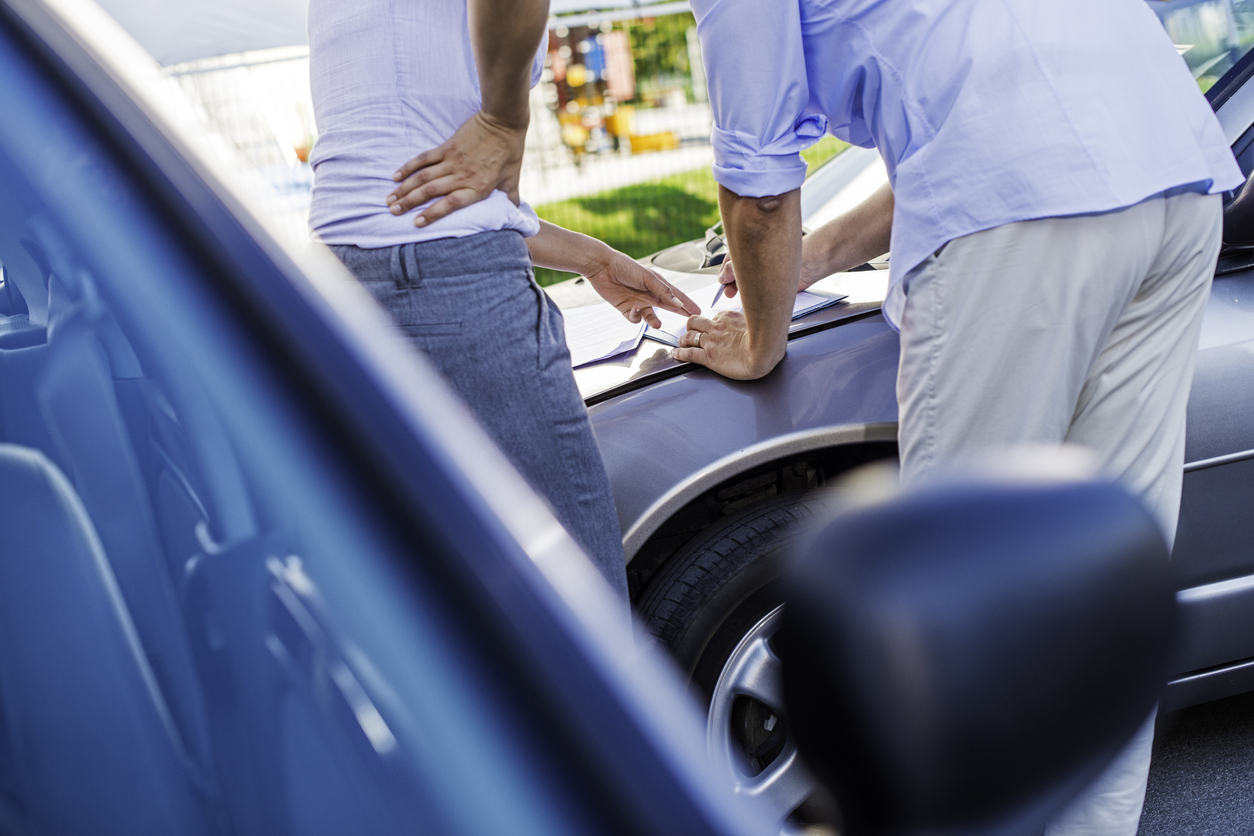Can a Friend or Relative Be a Witness in a Car Accident Case in Ocala, Florida?
Bill Allen | August 8, 2023 | Car Accidents

If you have suffered a personal injury in a car accident, you might be considering filing a claim for compensation. Ocala car accident lawyers can help you build a strong case, which may include calling witnesses to support your version of events.
Who can be a witness to a car accident? Can a family member be a witness in court? How about a friend? You can call family members and friends as long as they otherwise qualify as witnesses.
Expert Witnesses vs. Lay Witnesses
An expert witness is a paid witness who enjoys a high level of expertise in a certain field, such as medicine or economics. You might use an expert witness, for example, to help prove the long-term financial consequences of a catastrophic injury. It is difficult to qualify an expert witness to testify in court. That is because once qualified, they can testify on their professional opinion of events they did not personally witness.
A lay witness, by contrast, enjoys no special expertise. They testify based on personal knowledge alone (please see below for details). When an eyewitness to an auto accident is asked for their opinion in court, the opposing party will almost certainly object. The opposing party will even challenge a statement like, “The defendant appeared to be drunk.”
Qualifications for Lay Witnesses
Ultimately it is the judge who will determine whether the jury hears the testimony of a lay witness. It will be difficult for the opposing party to argue against the qualification of your witness as long as they meet the following qualifications.
- They must have first-hand knowledge of whatever they testify about. If they are to testify about a car accident, for example, they must have witnessed the accident or its aftermath. Examining event data recorder records of the accident will be insufficient unless they qualify as an expert witness.
- They must be “competent to testify.” This means they must be of sound mind, among other considerations. There is no formal lower age limit—even minors can testify. But they must be old enough and mature enough to understand their duty to tell the truth.
- They must be credible. For example, the opposing party is likely to challenge a witness with a criminal conviction for lying under oath.
The witness does not have to be unbiased to qualify. Nevertheless, a lack of bias will certainly enhance the witness’s credibility.
Why Won’t Bias Disqualify My Witness?
It is up to the jury to decide whether to believe the testimony of your witness. Just because the witness is your friend or relative doesn’t necessarily mean they are lying. Indeed, your witness might be the only person who observed the events that your claim seeks to resolve.
Disqualifying your witness would unfairly take the decision of whether to believe them out of the hands of the jury.
How Will the Opposing Party Seek to Discredit My Witness?
There are two main ways the opposing party might use to discredit your witness, which are:
- Bias: The opposing party might suggest or insinuate that your witness has a personal interest in the outcome of the case. A jury can choose to accept or reject this suggestion.
- Emotional involvement: If your witness is testifying about a traumatic event, their emotions might be distorting their memory or interpretation of events.
There are other ways to discredit a witness that don’t rely on their personal relationship with you.
If the Jury Doesn’t Believe the Testimony of Your Witness
What if the court doesn’t believe the testimony of your friend or relative witness? Well, in most cases, there isn’t a whole lot you can do about it. Believing or disbelieving a witness is within a jury’s discretion. In fact, it is one of the main reasons the court empaneled a jury in the first place.
Do I Need an Ocala Car Accident Lawyer?
If you seek to call a friend or a relative as a witness, you probably need a lawyer. The opposing party’s lawyer will “chew them up and spit them out” if you don’t know just how to handle the situation.
As long as your witnesses are honest, however, a qualified Ocala car accident lawyer is likely to be able to overcome any unwanted allegations regarding their credibility that come from the opposing party.
Contact Our Ocala Car Accident Lawyers at Allen Law Accident & Injury Lawyers in North Central Florida
If you need legal assistance, contact the Ocala car accident lawyers at Allen Law Accident & Injury Lawyers at your nearest location to schedule a free consultation today.
Allen Law Accident & Injury Lawyers – Ocala Office
112 S Pine Ave
Ocala, FL 34471
(352) 351-3258
Hours: Open 24 hours daily
We have two other convenient locations in North Central Florida:
Allen Law Accident & Injury Lawyers – Downtown Gainesville
621 W University Ave
Gainesville, FL 32601
(866) 928-6292
Allen Law Accident & Injury Lawyers – Gainesville office
2550 SW 76th St #150
Gainesville, FL 32608
(877) 255-3652

